5 types of panhandlers to avoid in Russia
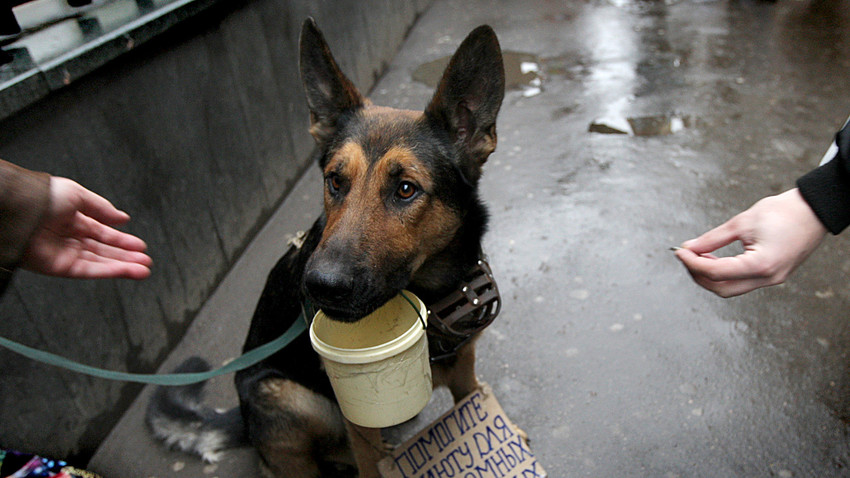
A dog holding an alms cup in its mouth. Often animals are used by beggars to draw sympathy from the public.
Valeriy Melnikov/SputnikIn Russian cities, it’s usually best not to give money to anyone begging in the street because many asking for cash aren’t what they seem. Here is a look at five types of panhandlers you’ll want to dodge, along with tips for better alternatives for charitable giving.
1. Professional beggars
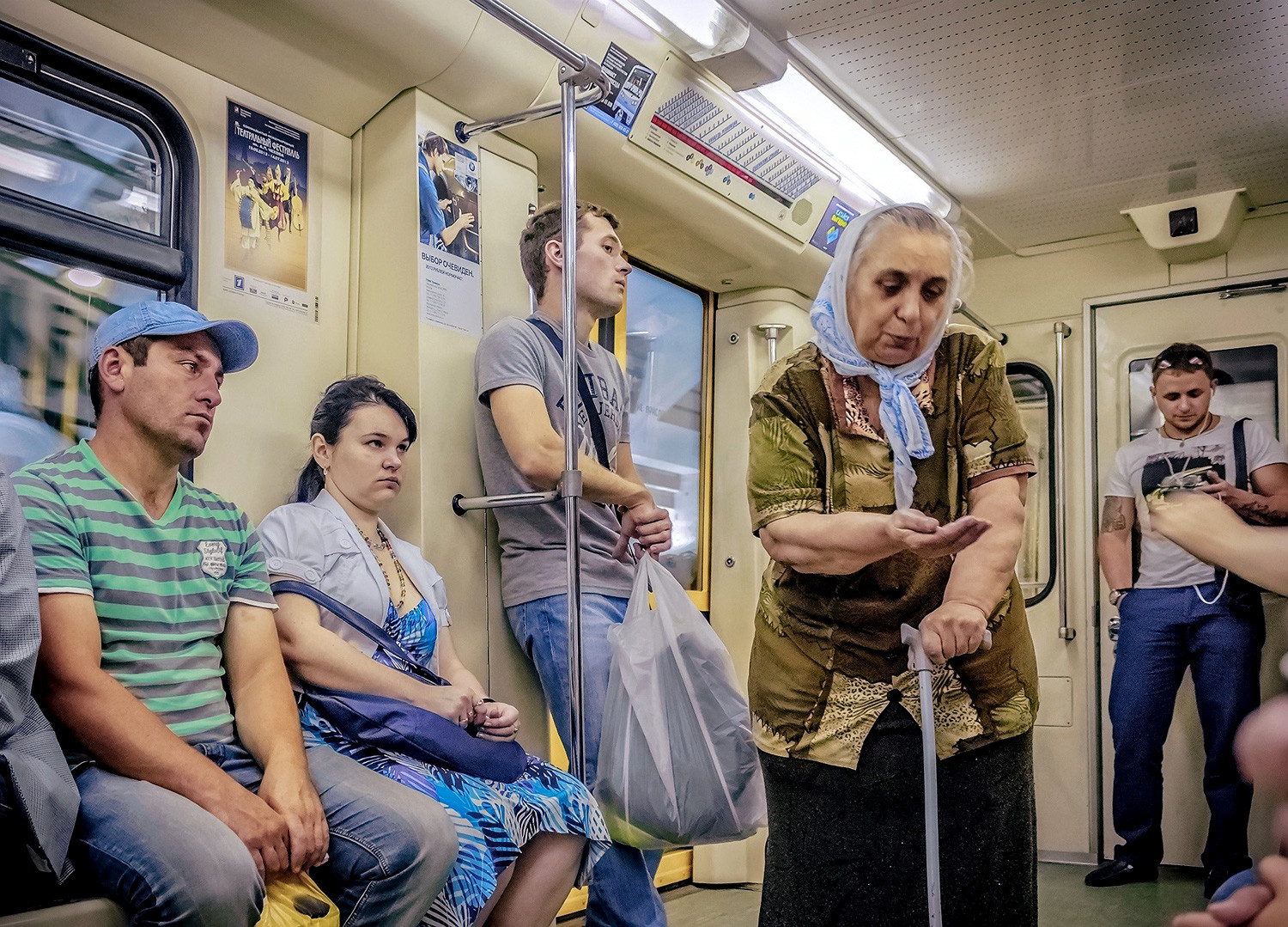
A woman begging for money in the Moscow metro.
KommersantPeople seeking help from
But often such individuals aren’t who they say they are. As the social-aid website Takie Dela (“So It Goes”) asserts, they may be part of a “beggars’ mafia,” turning over the money they collect to “curators” who provide for their needs. It’s a business, closely linked to crime, and supporting it is unwise.
Advice: If you feel like helping such people, try to do so without giving money. Instead, offer what they claim they need (food, a bus or train ticket to their home city, etc.). If they are truly in need, they will take your help; the swindlers won’t.
2. Homeless people
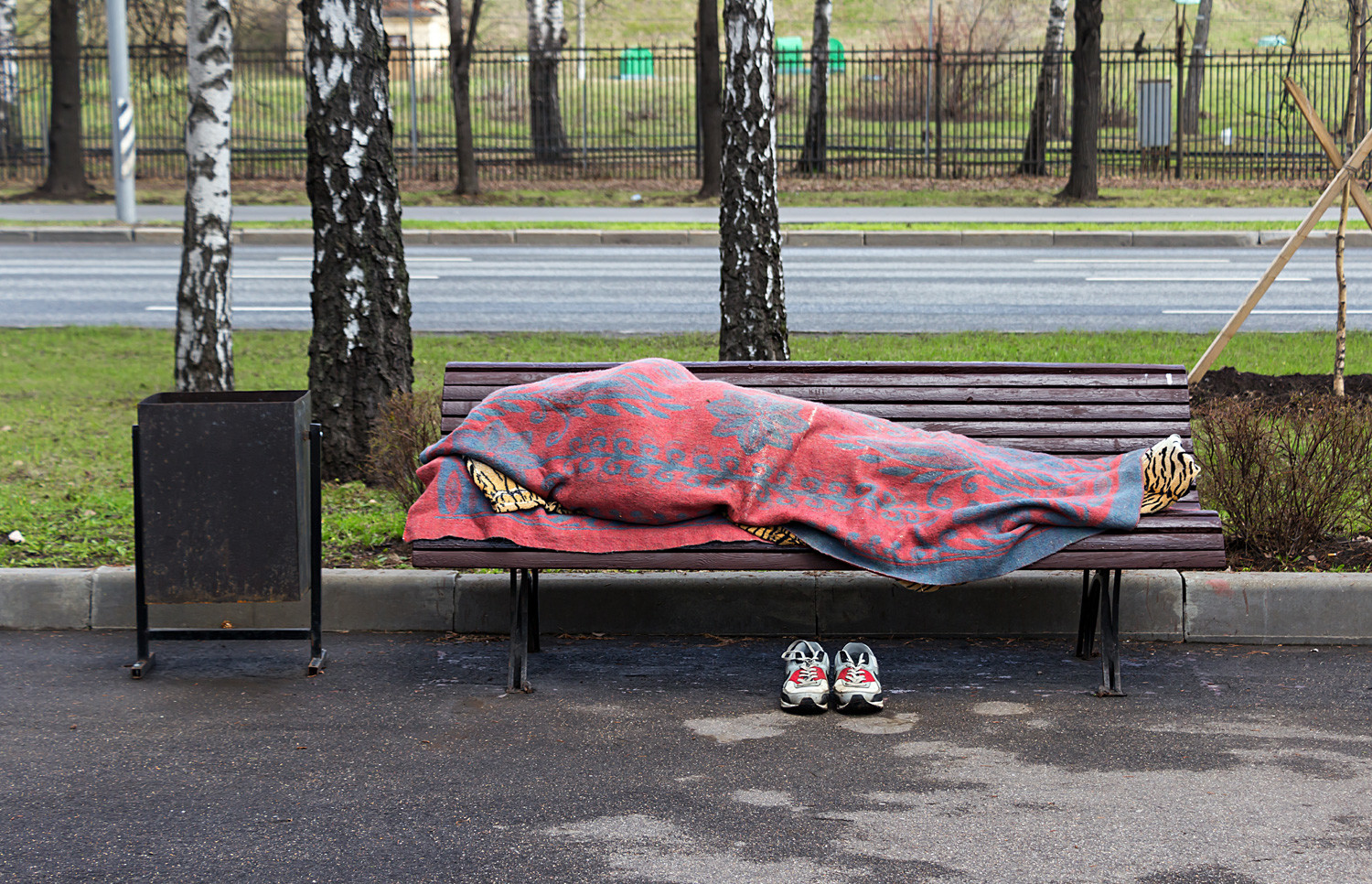
A homeless person sleeping on a bench near Sparrow Hills, Moscow.
Galina Barbieri/Global Look PressYou can’t be sure the money you’re being asked to give will go for food. Many homeless people have problems with alcohol and will spend whatever they get panhandling on the next bottle. This can prove dangerous: getting drunk outside in winter may cause a homeless person to lose consciousness and die from exposure to the cold.
Advice: Buy a homeless person food yourself. Help them contact organizations that can provide shelter and connect them with social services.
In Moscow: +7 (495) 720-15-08, +7 (903) 720-15-08 (social patrol service)
In St. Petersburg: +7 (812) 407-30-90 (Nochlezhka, a charitable organization)
3. 'Volunteers'
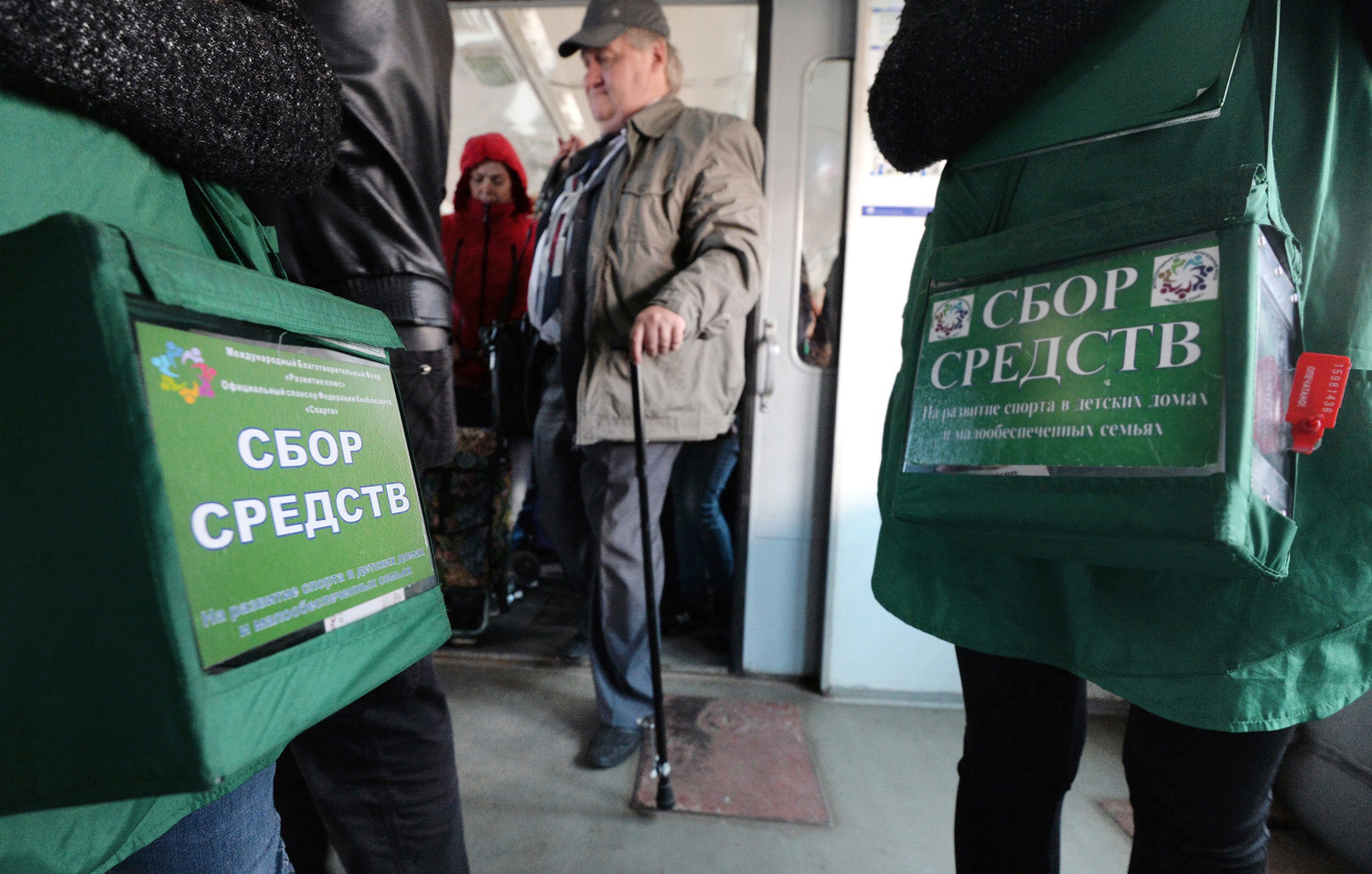
Volunteers collecting money on a train. Sadly, not all of them can be trusted
KommersantThese respectable-looking people, often young, are out in public with boxes for collecting cash that’s ostensibly going to help an orphanage, an animal shelter or some other worthy cause. But they’re not really volunteers. At best, they’re collecting money for a questionable outfit that takes a huge chunk of donations for itself. Or there may be no “orphanage” at all, and those being paid as “volunteers” might not even know this.
“No serious charity raises money by collecting cash from passersby in the street,” Takie Dela concludes. It quotes Vladimir Berkhin, the head of the charitable fund Predaniye (Tradition), as saying, “Such stories smell fishy and you should not participate in them.”
Advice: Instead of giving cash to strangers, donate to an established charity of your choice. Examples of umbrella organizations that support charities include Vsye Vmeste (“All Together”) and Nuzhna Pomosh (“Help Is Needed”):
Vsye Vmeste: +7 (495) 648-90-02; info@wse-wmeste.ru
Nuzhna Pomosh: +7 (495) 641-02-86; mne@nuzhnapomosh.ru
4. 'Animal-rights protectors'

A dog holding an alms cup in its mouth. Often animals are used by beggars to draw sympathy from the public.
Valeriy Melnikov/SputnikSuch people use dogs as props, walking them in the street or metro stations, often holding signs that read, “Need money to feed the dog” or “Raising money for an animal shelter.” As Natalya Bystrova, the head of an actual shelter for stray and abandoned
Even worse, the
Advice: Don’t give money to beggars with animals. To help homeless animals, donate to a known charity such as
5. Old people or children seeking money for transportation
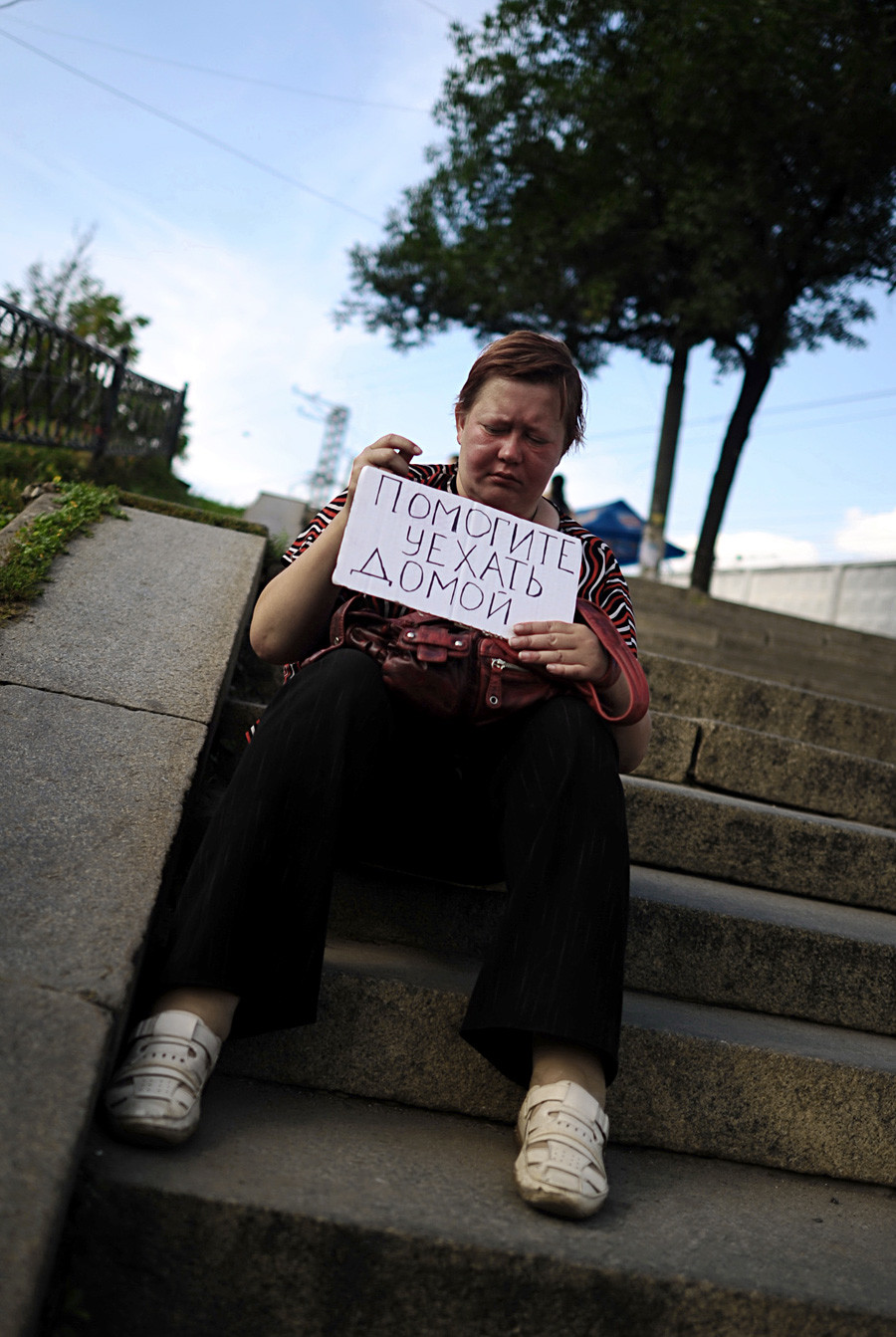
A woman holding "help me to get home" sign.
Zurab Dzhavakhadze/TASSAdvice: Ask the person where they’re going. If they seem lost, contact
If you want to know more about Russia’s social problems, read our article on recent attacks on Russian schools.
If using any of Russia Beyond's content, partly or in full, always provide an active hyperlink to the original material.
Subscribe
to our newsletter!
Get the week's best stories straight to your inbox